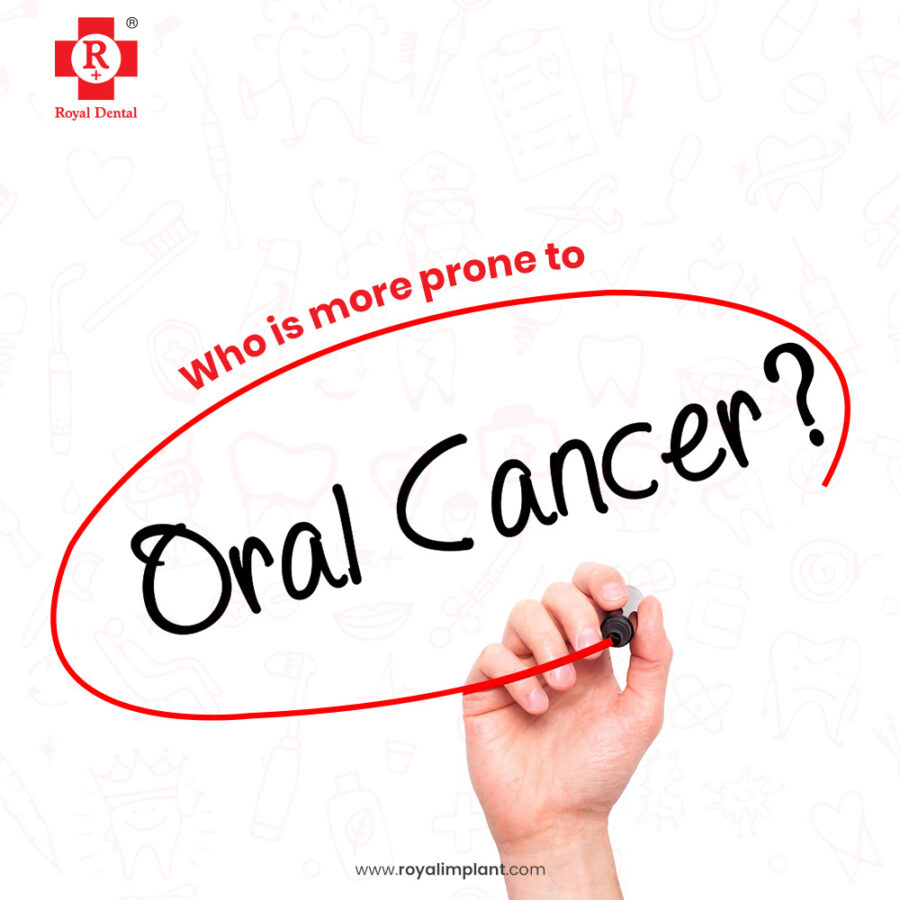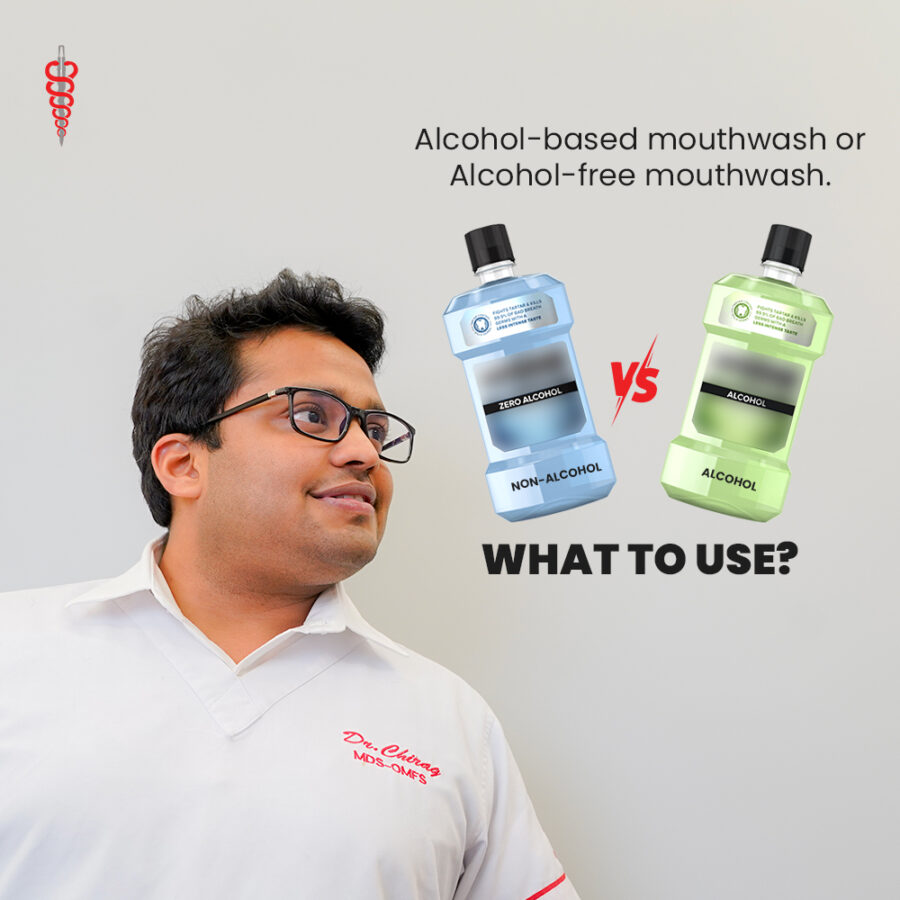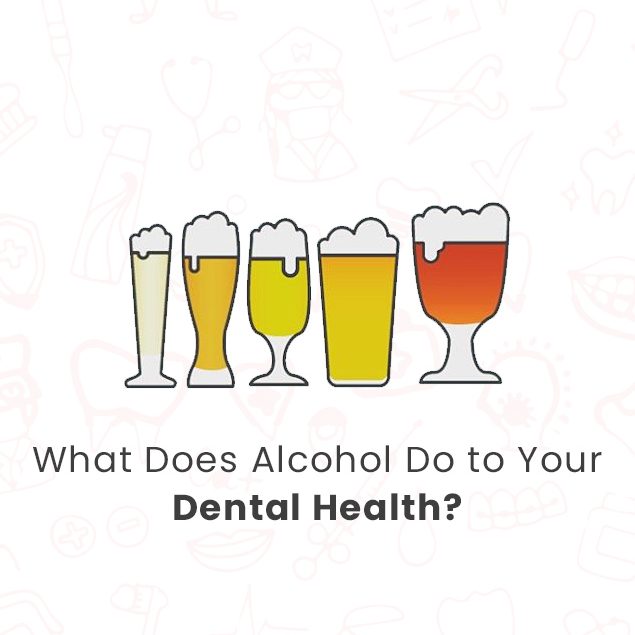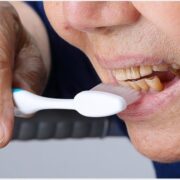Raise a glass to good oral health! You might be surprised to learn that there is a connection between alcohol and the health of your teeth. While we often hear about the negative effects of alcohol on our liver and overall health, it turns out that moderate alcohol consumption can actually have some benefits for our pearly whites. Of course, this doesn’t mean you should start chugging beer or wine to improve your dental health. It’s all about balance and understanding the science behind it. So, whether you enjoy a glass of red with dinner or a cold beer on a hot summer day, let’s explore the surprising connection between alcohol and oral health. Cheers to healthy teeth!

The Science Behind Alcohol and Oral Health
The first question that comes to mind is, how can alcohol be good for oral health? To understand this, we need to look at the science behind it. According to studies, alcohol has both positive and negative effects on oral health. The positive effects come from the fact that alcohol can reduce the presence of harmful bacteria in the mouth. This is because alcohol has antimicrobial properties that can kill the bacteria responsible for tooth decay and gum disease. However, the negative effects of alcohol on oral health are well-documented as well.
Alcohol is a dehydrating agent, which means that it can dry out the mouth and reduce saliva production. Saliva is essential for breaking down food particles and neutralizing harmful acids in the mouth. When there is less saliva, it can lead to a buildup of plaque and bacteria, which can cause tooth decay and gum disease. Additionally, excessive alcohol consumption can lead to poor oral hygiene, which can also contribute to dental problems. Overall, the science behind alcohol and oral health is complex, and the effects depend on the amount and frequency of alcohol consumption. Let’s explore the different effects of alcohol on the mouth.
The Effects of Alcohol on the Mouth
Dry mouth: Alcohol can cause a decrease in saliva production, leading to a dry mouth. This can lead to a host of problems, including bad breath, an increased risk of cavities, and gum disease.
Staining of teeth: Alcohol can stain the teeth over time, especially red wine and dark liquors. These stains can be difficult to remove, and may require professional teeth whitening.
Increased risk of oral cancer: Alcohol consumption has been linked to an increased risk of oral cancer. This is because alcohol can irritate the cells in the mouth, making them more susceptible to mutations and cancerous growths.

Irritation of oral tissues: Alcohol can irritate the soft tissues in the mouth, including the gums and tongue. This can lead to inflammation, pain, and sensitivity.
Increased risk of gum disease: Alcohol consumption can also increase the risk of gum disease. This is because alcohol can weaken the immune system, making it harder for the body to fight off infections.
Reduced healing ability: Alcohol consumption can reduce the body’s ability to heal itself, including healing in the mouth. This can make it harder to recover from oral surgery, for example.
Benefits of moderate Alcohol Consumption on Oral Health
There is some evidence to suggest that moderate alcohol consumption may have some benefits for oral health. Moderate alcohol consumption is defined as up to one drink per day for women and up to two drinks per day for men.
Reduced risk of gum disease: Studies have found that moderate alcohol consumption may be associated with a reduced risk of gum disease. This may be due to the anti-inflammatory effects of alcohol.
Lower risk of tooth loss: One study found that moderate alcohol consumption was associated with a lower risk of tooth loss in men. This may be because alcohol can have a positive effect on bone density.

Increased saliva production: While excessive alcohol consumption can lead to a dry mouth, moderate alcohol consumption may actually increase saliva production. This can help to neutralize acid in the mouth and prevent tooth decay.
Antimicrobial properties: Some types of alcohol, such as red wine and beer, have been found to have antimicrobial properties. This means they can help to kill bacteria in the mouth that can cause tooth decay and gum disease.
Reduced stress: Moderate alcohol consumption may help to reduce stress, which can have a positive effect on oral health. Stress has been linked to a higher risk of gum disease and other oral health problems.
Dangers of excess Alcohol Consumption on Oral Health
- Dry mouth: Excessive alcohol consumption can cause a decrease in saliva production, leading to a dry mouth. This can increase the risk of tooth decay, gum disease, and bad breath.
- Increased risk of oral cancer: Excessive alcohol consumption has been linked to an increased risk of oral cancer. This is because alcohol can irritate the cells in the mouth, making them more susceptible to mutations and cancerous growths.
- Irritation of oral tissues: Excessive alcohol consumption can irritate the soft tissues in the mouth, including the gums and tongue. This can lead to inflammation, pain, and sensitivity.
4. Increased risk of gum disease: Excessive alcohol consumption can increase the risk of gum disease. This is because alcohol can weaken the immune system, making it harder for the body to fight off infections.
5. Tooth decay: Excessive alcohol consumption can increase the risk of tooth decay. This is because alcohol can erode tooth enamel and make the teeth more susceptible to decay.
6. Oral injuries: Excessive alcohol consumption can impair coordination and balance, increasing the risk of falls and oral injuries. These injuries can range from minor cuts and bruises to more serious injuries such as broken teeth.
The Impact of Different Types of Alcohol on Oral Health
Different types of alcohol can have varying impacts on oral health. Here are some of the main ways in which different types of alcohol can affect the mouth:
Beer: Beer has a high carbohydrate content and can be acidic, which can contribute to tooth decay. However, some types of beer may have antimicrobial properties that can help to kill bacteria in the mouth.
Wine: Red wine in particular has been found to have antimicrobial properties that can help to kill bacteria in the mouth. However, wine is also acidic and can contribute to tooth decay.
Spirits: Spirits, such as vodka and whiskey, are often consumed with mixers that are high in sugar. This can increase the risk of tooth decay. In addition, spirits are often consumed in higher quantities than other types of alcohol, which can lead to a range of negative effects on oral health.
Cider: Cider is acidic and can contribute to tooth decay. It also often contains a high level of sugar, which can increase the risk of tooth decay.
Tips to maintain Good Oral Health while taking Alcohol
Maintaining good oral health while consuming alcohol is all about balance. Here are some tips to help you keep your teeth and gums healthy:
Drink in moderation: As we’ve mentioned, moderation is key. Stick to one or two drinks per day, and avoid binge drinking.
Choose your drinks wisely: Red wine can have some benefits for oral health, but beer and hard liquor can be harmful. Stick to drinks that are low in sugar and acid.
Stay hydrated: Drink plenty of water while consuming alcohol to help prevent dehydration and reduce the negative effects on oral health.
Brush and floss regularly: Regular brushing and flossing are essential for maintaining good oral hygiene. Make sure to brush twice a day and floss at least once a day.
Visit the dentist regularly: Regular dental check-ups are essential for preventing and treating dental problems. Make sure to visit the dentist at least twice a year, or more often if you have specific dental concerns.
By following these tips, you can enjoy a drink without compromising your oral health. Let’s explore some common dental problems associated with alcohol consumption.
Common Dental Problems with Alcohol Consumption
Tooth decay: Alcohol can reduce saliva production, which can lead to a buildup of plaque and bacteria. This can contribute to tooth decay.
Gum disease: Alcohol can irritate the gums and lead to inflammation, which can make them more susceptible to infection. This can contribute to gum disease.
Oral cancer: Excessive alcohol consumption is a significant risk factor for oral cancer. This is because alcohol can damage the DNA in cells, which can lead to the growth of cancerous cells.
Dry mouth: Alcohol can dry out the mouth and reduce saliva production, which can lead to a dry mouth. This can contribute to several dental problems, including tooth decay, gum disease, and bad breath.
Overall, it’s important to be mindful of the potential dental problems associated with alcohol consumption. Let’s explore the role of dental hygiene in preventing alcohol-related oral health problems.
Role of Dentist in Preventing Alcohol-Related Problems
Brushing and flossing: Regular brushing and flossing help to remove plaque and food particles from the teeth and gums, reducing the risk of tooth decay and gum disease.
Using mouthwash: Mouthwash can help to kill bacteria in the mouth that can cause bad breath and contribute to tooth decay and gum disease.
Drinking water: Drinking plenty of water can help to keep the mouth hydrated and reduce the risk of dry mouth. This can help to prevent tooth decay and gum disease.
Maintaining good dental hygiene is essential in preventing alcohol-related oral health problems.
Regular dental checkups: Regular dental checkups are important for detecting and treating any oral health problems early on, before they become more serious.
Reducing alcohol consumption: Limiting alcohol consumption to moderate levels can help to reduce the risk of alcohol-related oral health problems.
Eating a balanced diet: A balanced diet that is rich in vitamins and minerals can help to keep the teeth and gums healthy, reducing the risk of tooth decay and gum disease.
Importance of Regular Dental Check-Ups
Early detection and treatment of oral health problems: Regular dental check-ups can help to detect oral health problems early on, before they become more serious. This can include tooth decay, gum disease, and oral cancer, which are all risks associated with excessive alcohol consumption.
Professional cleaning: Dental check-ups also involve a professional cleaning, which can help to remove plaque and tartar from the teeth and gums. This can help to reduce the risk of tooth decay and gum disease, which are both common problems associated with excessive alcohol consumption.
Oral cancer screening: Oral cancer is a risk associated with excessive alcohol consumption, and regular dental check-ups often involve an oral cancer screening. This can help to detect any signs of oral cancer early on, when it is more treatable.
Advice on good oral hygiene practices: Dental check-ups provide an opportunity for individuals to receive advice on good oral hygiene practices, including brushing and flossing techniques, and the use of mouthwash. This can help individuals to maintain good oral health and reduce the risk of oral health problems associated with excessive alcohol consumption.
Monitoring of overall health: Dental check-ups also provide an opportunity to monitor overall health, including blood pressure and other vital signs. This can help to identify any potential health problems that may be related to excessive alcohol consumption.
Conclusion
In conclusion, alcohol can have both positive and negative effects on oral health. Moderate alcohol consumption can reduce the presence of harmful bacteria in the mouth and increase saliva production, which can help to prevent tooth decay and gum disease. However, excessive alcohol consumption can have serious negative effects on oral health, including poor oral hygiene, oral cancer, and dehydration. It’s important to find the right balance when it comes to alcohol and oral health. Drinking in moderation, choosing the right drinks, staying hydrated, and maintaining good dental hygiene can help to prevent alcohol-related dental problems. Additionally, regular dental check-ups are essential for preventing and treating dental problems. So, raise a glass to good oral health, but remember to drink responsibly and take care of your teeth and gums. Cheers to healthy teeth!






